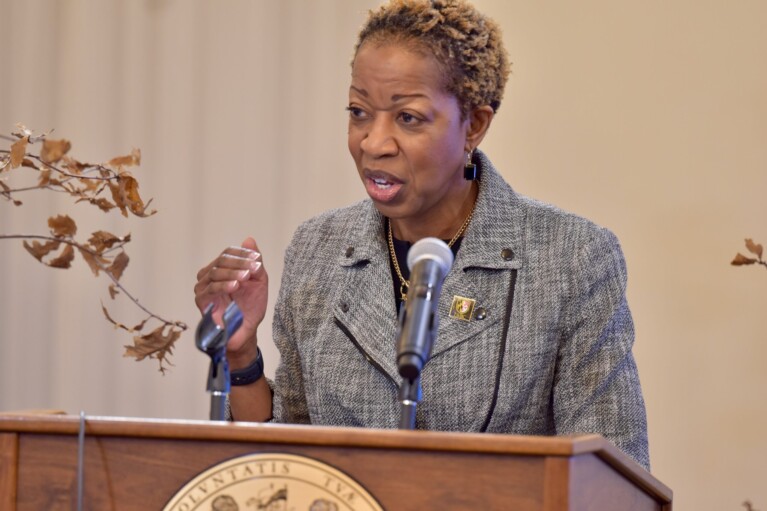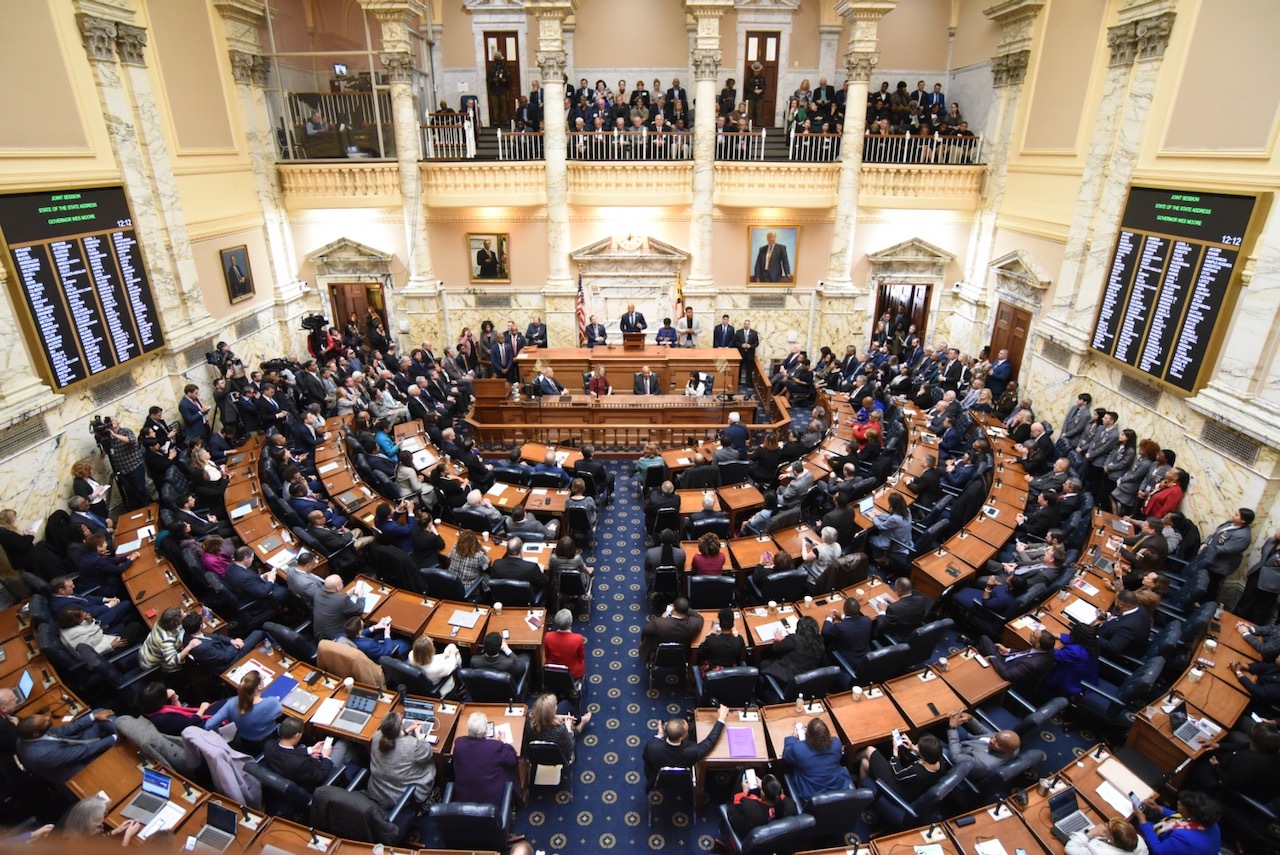Fifty Years On, Maryland Public Information Act May See Reform

Fifty years after its inception, the Maryland Public Information Act could see major reform in 2020.
Lawmakers on the House Government and Health Operations Committee centered their attention Tuesday around proposed amendments to the way that public records requests are handled.
Pending legislation on a number of topics, from what information is up for disclosure to the amount of time agencies have to relinquish it, prompted a multitude of panelists to weigh in.
Tightening the Deadline
As the statute currently stands, state government agencies have 30 days to respond to a Public Information Act request unless the record’s custodian requests an extension.
This hotly contested legislation sponsored by Del. Michele J. Guyton (D-Baltimore County) would cut the amount of time that government agencies have to respond with the first 100 pages of records from 30 days to 15. If enacted, requests must also be approved or rejected within one week of their receipt.
Guyton said that Maryland has the longest request deadline in the United States and that the state’s average response time stretches to 59 days.
The bill was amended before the hearing. It originally suggested public records requests be fulfilled within seven days.
Guyton said that the legislation has yet to receive a new fiscal and policy note accounting for the amendments and that she has heard a lot of concern from public agencies.
“I have never had so many people in opposition to one of my bills,” Guyton said.
The opposition testimony offered insight into the concern. A lot of agencies said they simply don’t have the manpower to complete requests on such tight deadlines.
Stacy Milor of North Beach came before the panel as a representative of the Maryland Municipal Clerks Association. She told the committee that in addition to being the town clerk and handling the municipality’s public information requests, she holds several other administrative positions including human resource director, payroll, farmers market manager and events coordinator.
“To reduce the time to respond to requests is just another item on my plate,” Milor said.
Hilary Ruley of the Baltimore City Law Department asserted that the legislation would result in less transparency with the public because when requests are denied, the people seeking information are owed an explanation. She said with that turnaround, her office’s answers will not be as detailed, leaving people in the dark.
Ruley also said that if enacted, the legislation would impose legal risks upon records custodians. Current law says that if officials willfully or knowingly withhold records they can be fined or face criminal charges.
“Right now, at 30 days I’m pretty good,” said Ruley, “You shorten that, I am gonna know that I’m going to have to violate it.”
The bill is cross-filed in the Senate as SB67, with Sen. Christopher R. West (R-Baltimore County) as its sponsor. It will have a hearing in the Senate Education, Health, and Environmental Affairs committee early next month.
Anti-Litigation Legislation
In 2015, the General Assembly passed legislation that instituted the Public Information Act Compliance Board and the Public Access Ombudsman with the intent of reducing the number of public records requests that are challenged in court.
State Public Access Ombudsman Lisa Kershner released a report in late December on the office’s effectiveness and gave recommendations on how to improve the program.
Sponsored by Del. Brooke E. Lierman (D-Baltimore City), a bill this session looks to adopt Kershner’s recommendations in a further attempt to reduce litigation by requiring state agencies to publish frequently requested materials on their websites and expanding the scope of responsibilities that the compliance board takes on when mediation through the ombudsman’s office fails, among other amendments.
Public Information Act Compliance Board member Darren S. Wigfield testified that the panel currently only has the ability to arbitrate issues surrounding what he called “artificially inflated fees.” He said that in its four years of existence the board has overseen 33 cases — a mere drop in the bucket compared to Kershner, who saw over 900 during the same time period.
“I’m not asking for unfettered access to government records,” Wigfield said. “I’m simply asking for meaningful enforcement of the access laws that already exist.”
The bill was largely viewed favorably at Tuesday’s hearing, though some witnesses suggested amendments. The Senate version, SB590, will have a hearing in the Education, Health and Environmental Affairs committee later this week.
Other Bills on the Table
Del. Robbyn T. Lewis (D-Baltimore City) is sponsoring HB380, which would create protections against the release of specific intelligence records compiled by either of the state’s two inspectors general.
Del. Alfred C. Carr Jr (D-Montgomery) presented HB372 and HB717. The two pieces of legislation would define more narrowly what information considered exempt by specific government organizations may actually be up for public disclosure.




 Creative Commons Attribution
Creative Commons Attribution